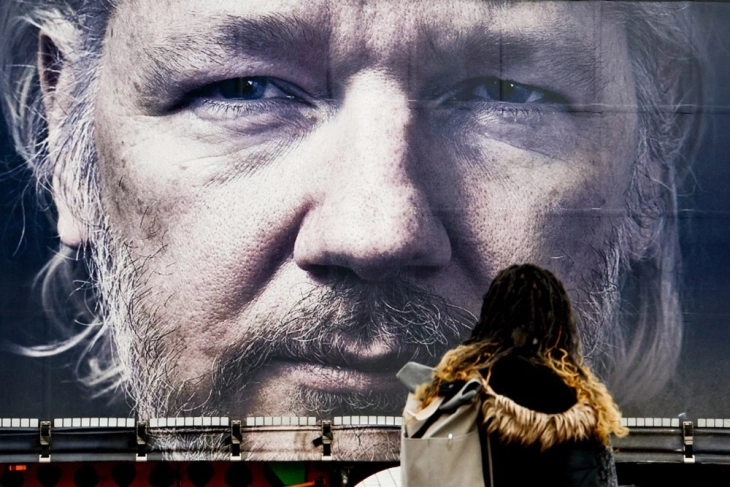Assange faces 'flagrant' denial of justice if extradited, court told
- Julian Assange is at risk of a “flagrant denial of justice” if he is extradited to the United States, London's High Court has heard in his final bid for an appeal in Britain.

London, 20 February 2024 (PA Media/dpa/MIA) - Julian Assange is at risk of a “flagrant denial of justice” if he is extradited to the United States, London's High Court has heard in his final bid for an appeal in Britain.
The WikiLeaks founder faces extradition to the US over an alleged conspiracy to obtain and disclose national defence information following the publication of hundreds of thousands of leaked documents relating to the Afghanistan and Iraq wars.
In a January 2021 ruling, then-district judge Vanessa Baraitser said that Assange should not be sent to the US, citing a real and “oppressive” risk of suicide, while ruling against the 52-year-old on all other issues.
Lawyers for Assange, who has been held in Belmarsh prison in south-east London, are now asking the High Court for the go-ahead to challenge her dismissal of other parts of his case against extradition.
At the start of the two-day hearing on Tuesday, his lawyer Edward Fitzgerald said Assange is being prosecuted for an "ordinary journalistic practice."
He told the court: "He is being prosecuted for engaging in ordinary journalistic practice of obtaining and publishing classified information, information that is both true and of obvious and important public interest."
The lawyer later described the case as a “legally unprecedented prosecution” and said that the 52-year-old faced a “real risk he will suffer a flagrant denial of justice” if he was extradited.
In written submissions, Fitzgerald said that if Assange – who did not attend the hearing due to illness – were extradited, he would face a trial in the US with “tainted evidence” and jurors who are “prejudiced irretrievably by public denunciations of him made by the president downwards."
The first day of the hearing was attended by dozens of journalists and members of the public, with scores of supporters of Assange gathering outside the central London courthouse from 8 am.
Addressing the crowd ahead of the hearing, Assange’s wife Stella Assange said: “We don’t know what to expect, but you’re here because the world is watching.
“They just cannot get away with this. Julian needs his freedom and we all need the truth.”
US authorities are opposing Assange’s bid for an appeal, telling the court his case is “unarguable” and should not be allowed to proceed to a full hearing.
James Lewis, an attorney for the US side, said in written submissions that Assange’s conduct is “consistently and repeatedly misrepresented” by him in the appeal bid.
The lawyer described the amount of classified material provided to Assange as “unprecedented," adding: “The appellant threatened damage to the strategic and national security interests of the United States and put the safety of individuals at serious risk.”
Lewis, who is expected to make oral arguments on behalf of the US on Wednesday, added that the original judge ruled Assange was not being prosecuted for political reasons but “because he is alleged to have committed serious criminal offences”.
“This decision is unimpeachable and there is no error to show that the district judge got it wrong,” he continued.
He added that it was “simply not credible” that a journalist would be immune from criminal prosecution in these circumstances.
The hearing is due to conclude on Wednesday with their decision on whether Assange can bring the appeal expected at a later date.
Photo: EPA







